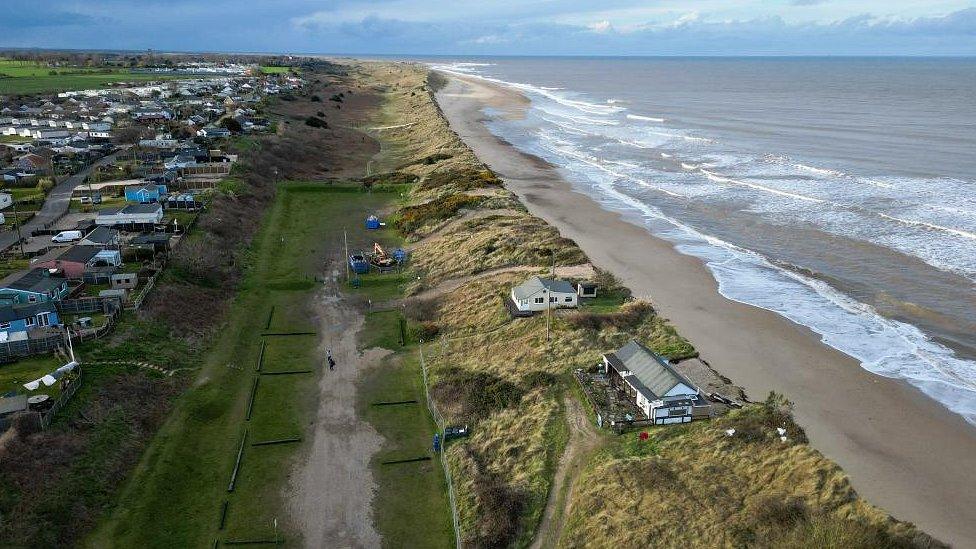Hemsby: More cliff lost in 'exceptionally high tide'
- Published

Hemsby independent lifeboat helmsman Chris Batten said with global warming the village was experiencing more adverse weather
A vulnerable coastal village has lost 1m (3.2ft) of cliff in some places after a "perfect combination" of a high tide and a change in wind direction.
The holiday village of Hemsby, Norfolk, lost metres of coastline earlier this year and five homes were demolished.
Lifeboat helmsman Chris Batten said it was "unexpected" to "worry about high tides and winds" during the summer.
The beach had to be cordoned off after sinkholes also opened up, but it has since reopened.
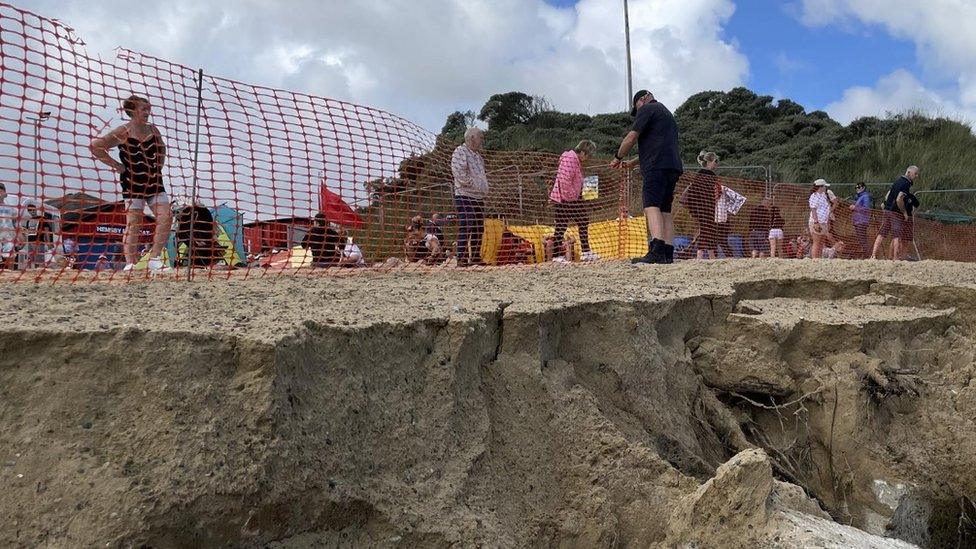
About 1m (3.2ft) of cliff was lost in the most vulnerable area of Hemsby, but not across the whole dune
Mr Batten said the damage was due to an "exceptionally high tide, but also a change in wind direction [to north-westerly] - that perfect combination".
"If the wind was in the opposite direction, which in fact is the prevailing wind, it would not be as much of an issue," the helmsman added.
The village is on a vulnerable stretch of coastline, which was battered by the spring tides and strong winds in March.
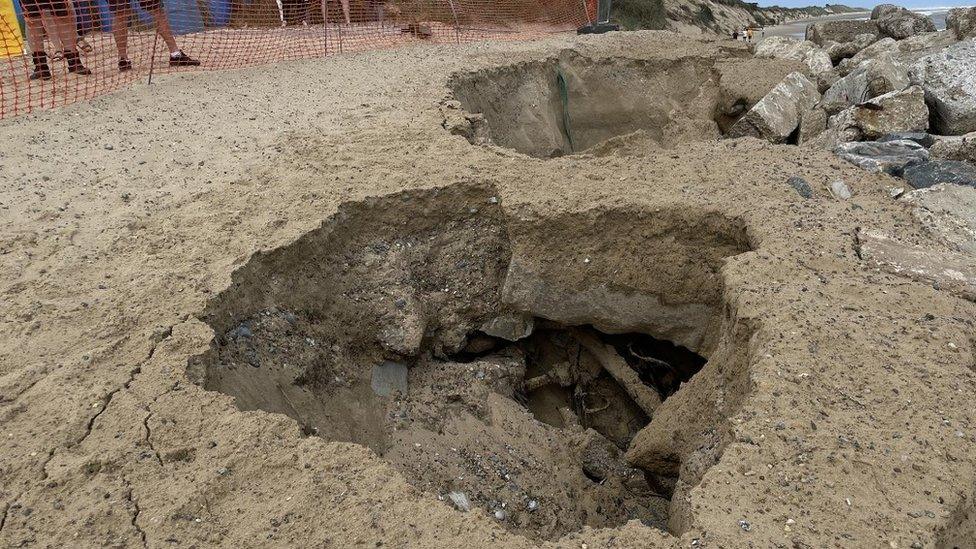
The sinkholes are still cordoned off, including one where the lifeguard station had sat
Mr Batten received a call at 06:00 BST from the lifeboat coxswain warning the lifeguard station was under threat.
"When we got here it was clear, because the waves were breaching over the rocks, that it wouldn't be too long before it undermined the sand and the dunes," he said.
The station was pulled back from the beach and "the area where it was stationed collapsed". About five sinkholes have since opened up.
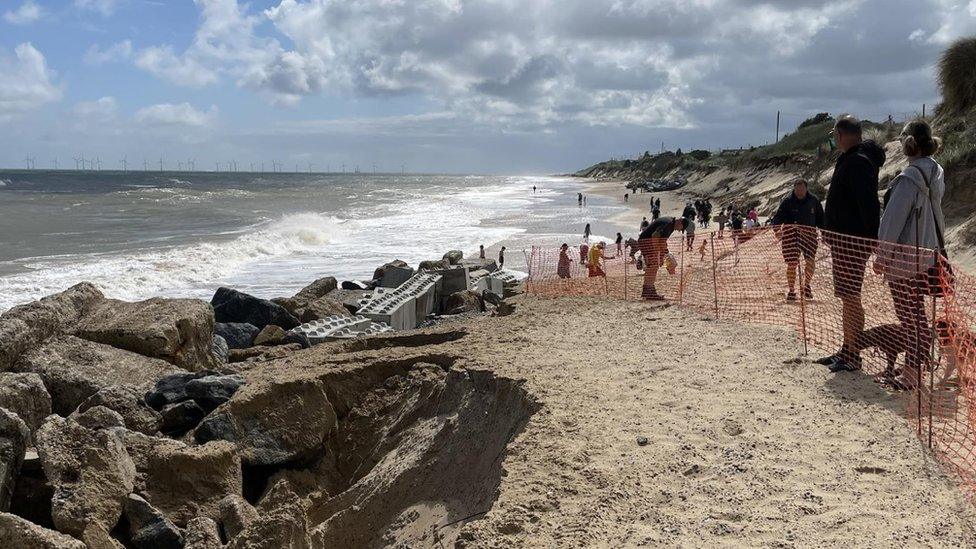
The village is on a vulnerable section of coastline
Mr Batten praised visitors for being "very supportive", despite the need to initially close off the beach.
About 2,000 tonnes of granite was placed along a 131ft (40m) section of cliff at The Marrams at the end of March.
Plans for a permanent defence stretching 0.8 miles (1.3km) have been granted a licence by the Marine Management Organisation.
However, the local council would need to find £15m to complete the work.

Follow East of England news on Facebook, external, Instagram, external and Twitter, external. Got a story? Email eastofenglandnews@bbc.co.uk, external or WhatsApp us on 0800 169 1830
Related topics
- Published20 May 2023
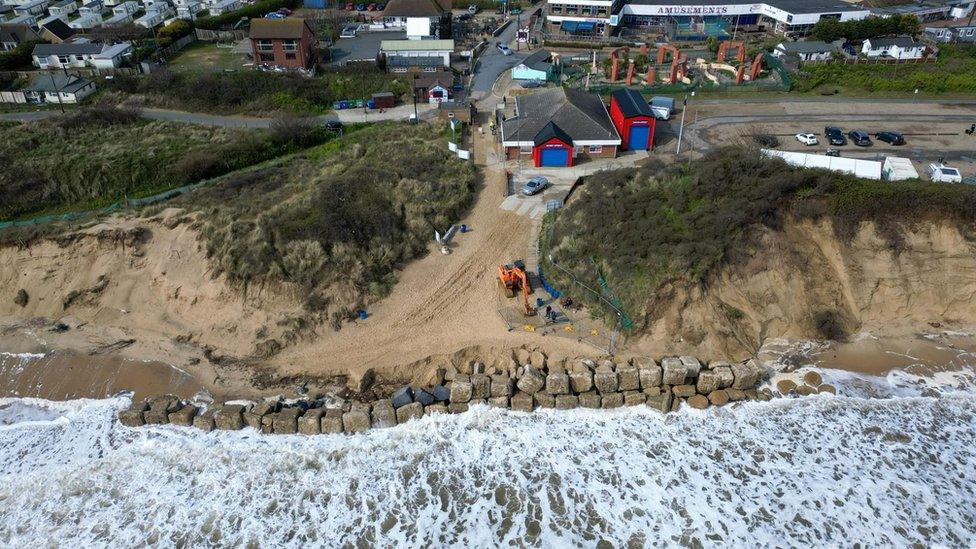
- Published31 March 2023
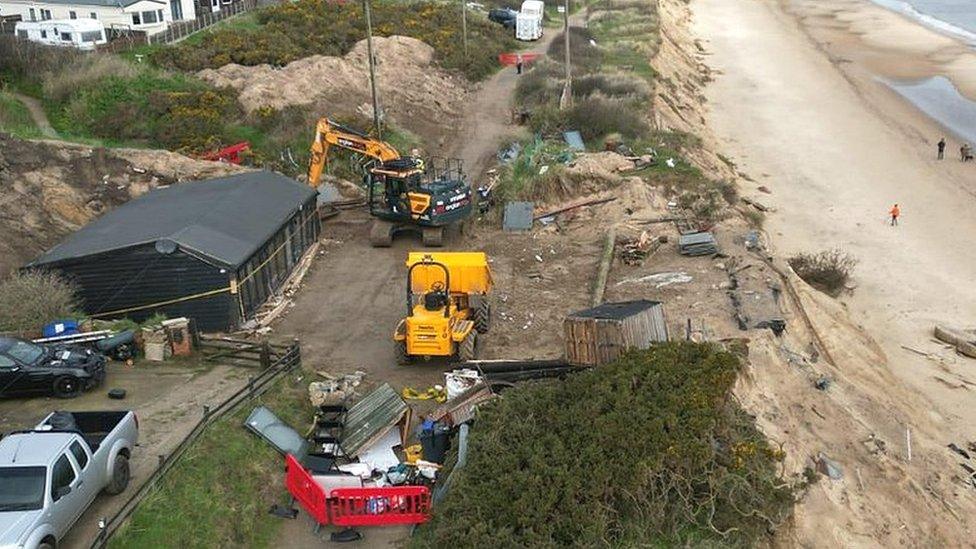
- Published26 March 2023
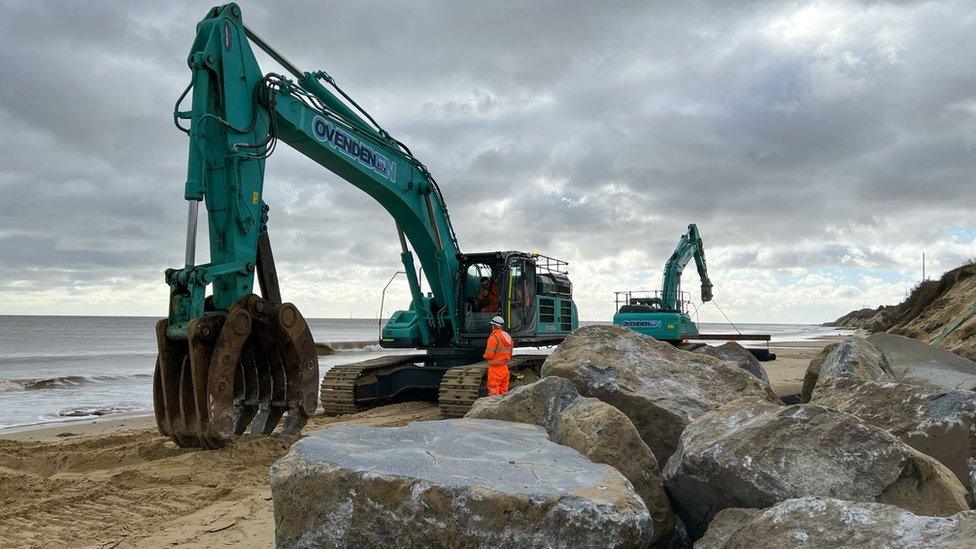
- Published24 March 2023
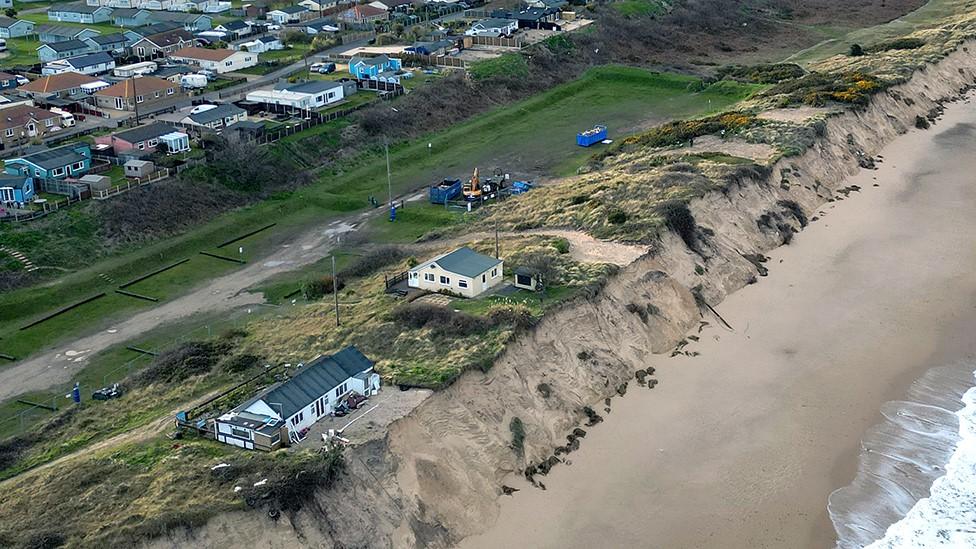
- Published17 March 2023
